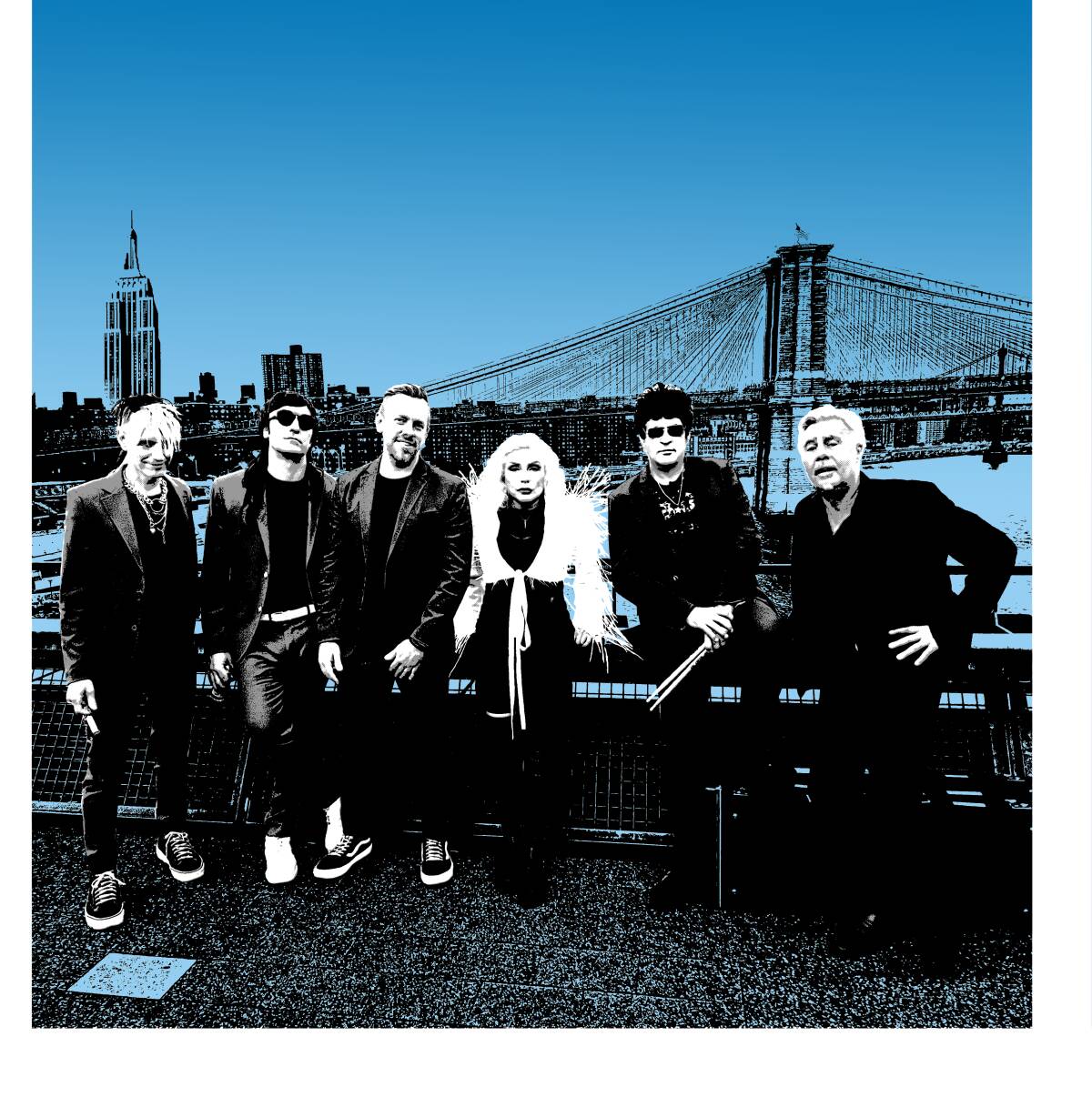
THERE was a time when Blondie were the epitome of New York City cool.
The front cover of their 1978 classic album Parallel Lines is iconic in the annuals of rock'n'roll: Five men dressed in black mod suits alongside their gorgeous blonde frontwoman, Debbie Harry.
"We never had people, particularly, telling us what to do," Blondie drummer Clem Burke says. "We never had stylists.
"Debbie's style all comes from her and the band's style - we wore the clothes that we liked. That was pretty fashion forward for the time."
Half a century after Harry and guitarist Chris Stein founded the band, Blondie are keeping their cool, but in a completely different way.
It's in the no-bullshit attitude of Harry, who wore a dress emblazoned with "Stop F--king The Planet" on their last visit to the Hunter Valley at Bimbadgen in 2017.
Harry, 78, has well past the age women are traditionally meant to front rock bands. But, as the 69-year-old Burke says, the band has never followed the industry's rules.
"There is that [ageism] out there, but we keep carrying on with what we do until we don't feel like doing it anymore," Burke says. "We're not trying to prove anything other than we want to put on a great show once we get on stage.
"These days rock'n'roll is more like jazz. It's a popular form of music, but it's not pop music. It's not mainstream.
"If you look at it in that context, we're not trying to portray ourselves as teenagers."

While Parallel Lines and its classic singles Heart Of Glass, Hanging On The Telephone and One Way Or Another turned Blondie into one of the world's hottest bands - due to their innovative blend of garage-rock attitude and disco sensibilities - Australia had already wised up to their charms.
Famously Molly Meldrum played Blondie's In The Flesh on Countdown instead of the A-side X Offender. In The Flesh subsequently became a surprise hit and led to a massive tour of Australia in 1977.
In what was a major culture clash for the New York-bred six-piece, Blondie played in a host of regional towns like Lismore, Wagga Wagga and Albury. There was also a concert at Newcastle's Civic Theatre.
"Looking back in the archive, it was probably the longest time we spent in Australia," Burke says. "We played country towns and travelled in a school bus. It laid the groundwork for our success in Australia."
Blondie have constantly toured Australia since the band reformed in 1997, following their initial disbandment in 1982 at the height of their popularity.
The last tour was in 2017 and long-time fans will notice several changes, most notably Chris Stein has hung up his guitar as a touring musician, due to health reasons, but he remains an official member.
Sex Pistols' Glen Matlock has also joined the band as their bassist.
According to rock'n'roll mythology, Matlock was famously sacked from the Pistols "for liking The Beatles" and replaced by the doomed Sid Vicious, who couldn't actually play bass, but looked punk.
Burke is a long-time friend of Matlock's and says he's brought "a certain level of credibility" to Blondie's live shows.
"Obviously the Pistols were a phenomenon and it was great to see him vindicated later on doing all the tours with the band.
"He's brought a certain musicality to the band. We have a new album yet to be released, which has one of Glen's songs on it. He's an all-round good guy and a great musician."
Burke is deeply proud of Blondie's legacy of confidently walking the tightrope between being experimental and writing great pop hooks.
The band's influence can be readily heard in the 2000s New York indie-rock revival led by The Strokes and The Yeah Yeah Yeahs and in Australian acts like The Preatures.
"That was probably the last rock'n'roll renaissance," Burke says.
"Just like we looked to The New York Dolls and Velvet Underground, bands like The Strokes and The Yeah Yeah Yeahs looked to bands like us and The Ramones, and Talking Heads.
"All those seminal influences continue to be a part of modern rock'n'roll."







